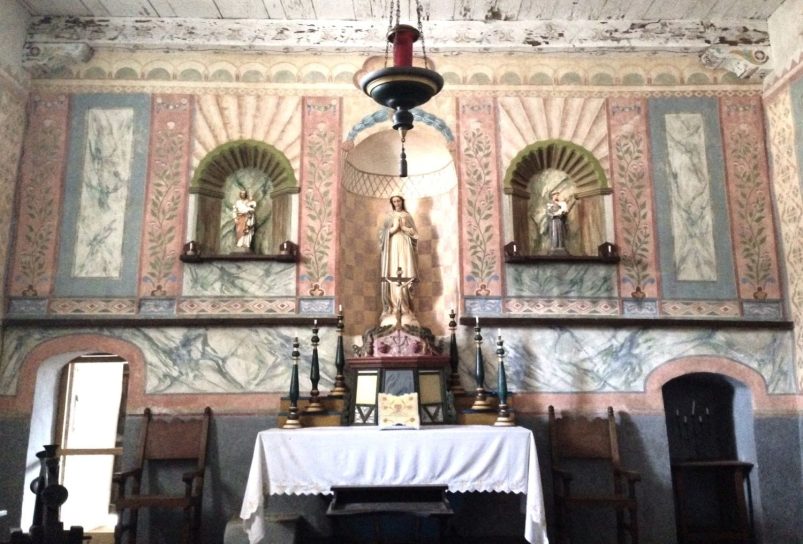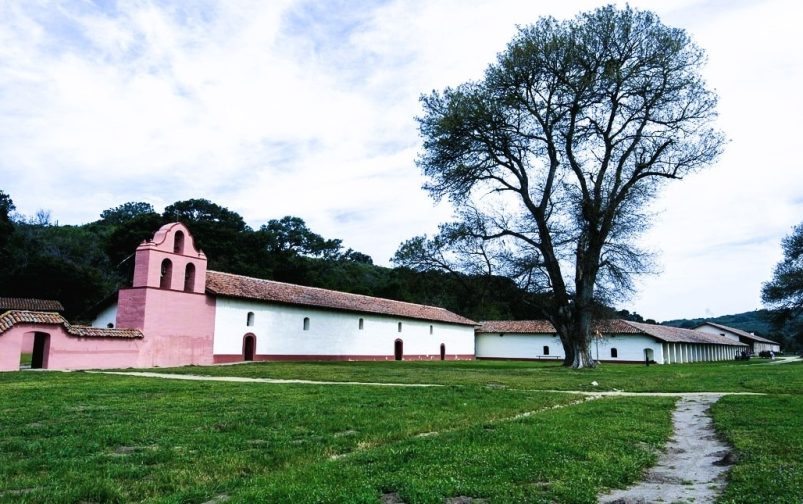Mission La Purísima was founded on December 8, 1787, at the site of the present town of Lompoc. After 25 years, the mission became extremely prosperous, with herds of livestock numbering in the thousands. Then came the great earthquake of 1812, which did so much widespread damage and struck Purísima perhaps worst of all. After a week of violent aftershocks, not a building was still standing. The mission was re-established at its present location four miles to the north and east. Prosperity returned.
After the Indian uprising of 1824, the mission declined, and ten years later was in the hands of the secular administrator. The neophytes disappeared, the Franciscans retired to Santa Barbara, and soon buildings were nothing more but piles of rubble. The desolation was so complete that after the site was returned to the Church it was offered for sale to the highest bidder.

La Purísima Concepción Mission was reborn when a California Conservation Corps project began in 1935. Building methods equivalent to those used by the early missionaries were employed. Hundreds of thousands of adobe bricks, floor, and roof tiles were handcrafted. After the buildings were completed, young craftsmen turned to making the furniture of the old period. Then, the complicated water system was recreated, beginning at springs more than a mile away, and brought to a series of storage pools. The gardens and orchards were re-planted. Today, Mission La Purísima is a State Historic Park of 967 acres and unique in that rangers and docents recreate mission life as at no other site, making it the most completely restored mission in California.
Not only have buildings been rebuilt on old foundations, but crops and animals of the mission period are there, as are docents in costumes of those times, who spin and weave wool, tan hides, make candles, operate the blacksmith shop, and guide visitors. The modern city of Lompoc, the Vandenberg Air Force Base, and the famous flower fields are nearby.
